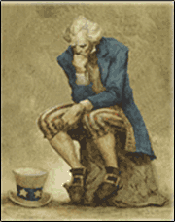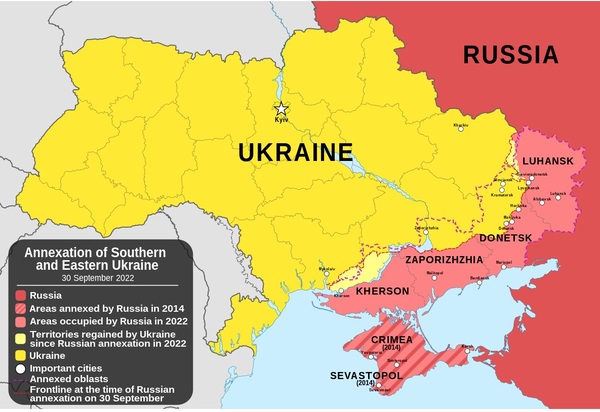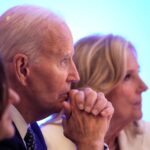
–>
February 1, 2023
I am responding to “Ukraine and the Unlearned Lesson of History,” by Jacob Fraden. published in AT 1/31/23.
‘); googletag.cmd.push(function () { googletag.display(‘div-gpt-ad-1609268089992-0’); }); }
I’ll start with the author’s contention that Russia’s war against Napoleonic France was one of its wars “of aggression.” On June 24, 1812, Napoleon invaded Russia with an army of 650,000, approximately the 12th European county to receive the French tyrant’s military attention. Who was the aggressor here? Tsar Alexander I was a hero at the Congress of Vienna, for crushing that invasion and breaking the French chronic aggressor’s back once and for all.
And most of Christian Europe had the sense to be grateful to Russia for driving the hated Turkish muslim conqueror and oppressor out of the Balkans and other parts of Europe. As to Russia’s wars with the Swedes, Lithuanians, Poles and Germans (13th through early 17th centuries), for much of that time those four, not Russia, were the aggressors. In fact, the Poles and Lithuanians burned Moscow in the early 17th century. And yes, in the 17th, 18th and 19th centuries Russia expanded eastward through Siberia and Asia, absorbing territory thinly populated by backward peoples. Who, of all people, are we Americans to fault Russia for THAT? Go to the blackboard, and write MANIFEST DESTINY 100 times.
It’s not merely this writer’s logic about the present that’s flawed – he’s terminally confused about the past.
‘); googletag.cmd.push(function () { googletag.display(‘div-gpt-ad-1609270365559-0’); }); }
More pertinently to the ongoing tragedy in Ukraine, after the Soviet collapse in 1991, Russia wanted peaceful integration into the European economic, political and security system. No knowledgeable person at the time doubted the sincerity of this wish; and no one in the 1990’s saw prostrate Russia as a threat to anyone. It was we, rather, the US military industrial complex (“MIC”) and neocon hegemonists, who rejected this desire, fervently and repeatedly expressed by both Gorbachev and Yeltsin.
The promises of no eastward expansion of NATO by Secretary of State James Baker (and no doubt other Western leaders) were promptly ignored by Clinton and his gang. NATO expanded successively in two major tranches -1999 and 2004 – and thereafter the well of the West’s relations with Russia was poisoned. But that poisoning, no doubt, was the neocon object of the NATO expansions.
The eastward expansion of NATO was condemned at the time of its first occurrence by no less an authority, and American patriot, than George Kennan, former ambassador to Russia and arguably the author of America’s Cold War policy of containing Soviet expansion.
In the 90’s Russia could do nothing about this massive breach of faith by the West. But object it did, and repeatedly. By Vladimir Putin’s assumption of power in 2000, no significant Russian leader could have been found who saw the West’s expansion of NATO as anything but threatening, or Gorbachev’s failure to prevent that expansion by formal treaty as anything but naive and incompetent.
Without firing a shot, in the period 1989-1991 the Soviet Union gave up an empire, more accurately, a cordon sanitaire, in Eastern Europe; and by 1994 it had withdrawn all of its troops from the region. At the same time, believing the West’s assurances that there would be no NATO eastward expansion and that Russia would be economically and politically integrated into Europe, Russia disbanded the Warsaw pact.
For all of these historically unique concessions Russia got no thanks, no integration into Europe, and successive gratuitous and – from its standpoint, threatening – eastward expansions of NATO.
‘); googletag.cmd.push(function () { googletag.display(‘div-gpt-ad-1609268078422-0’); }); } if (publir_show_ads) { document.write(“
By 2004 the US neocons had Ukraine in their sights as the next Western military base to be constructed on Russia’s doorstep – Ukraine, the eastern half of whose population was ethnically Russian, Russian speaking or pro Russian (or all three), and which for about 300 out of the last 350 years had been part of either Russia or the Soviet Union.
In 2007, in Vladimir Putin’s Munich speech, the Russian government made it plain that Ukraine was the reddest of red lines. Russia would never tolerate a Ukraine militarily aligned with NATO, stuffed with sophisticated American weaponry, on its front porch. In fact, that reality had been clear since America’s open and obvious support for the 2004 so-called “color revolution.”
This plainly and repeatedly communicated position was nothing more than Russia’s iteration of the same policy that President Kennedy announced in 1962 – that no great power would be permitted to establish a threatening military presence in America’s part of the world. Does America have a better right to a militarily nonthreatening Cuba than Russia has to a similarly benign Ukraine?
But nothing changed the attitude if the US neocons and MIC. In 2008 that deep thinker, George W. Bush, successfully twisted NATO’s arm (over German and French objections) into promising that Ukraine and Georgia would “eventually” be offered NATO membership. Russia was further enraged. And the clueless President of Georgia took the promise as a signal that he could, with impunity, move militarily against Russian ethnics living in the northern part of Georgia. In the event, Russian protective military action put a quick stop to that.
The final straw was US support for the violent, anti-democratic riots in Ukraine in 2014, which resulted in the the deposing of freely elected, pro-Russian Ukrainian President Victor Yanukovic. The pro-West, democratically illegitimate regime that replaced Yanukovic threatened to ban the use of Russian as an official language, and to take other steps perceived as highly adverse to the overwhelmingly pro-Russian Donbas population; in consequence, demands came from the Donbas for some form of guaranteed autonomy within Ukraine. The new Kiev government’s response was to wage a war against its own Donbas population, which, by 2022, had cost the lives of 15-20,000 Donbas residents.
Also shortly after its installation in 2014, the newly, non-democratically installed Kiev regime hinted that Russia’s long term Sevastopol naval lease would not be renewed. Russia responded by reincorporating Crimea – to the relief of the vast majority of Crimea’s population. With the exception of Nikita Khrushchev’s purely internal administrative change, Crimea had been part of Russia since 1793 when Catherine the Great had defeated the Turks.

When the Biden administration took power in 2021 it immediately began treating Ukraine as a defacto member of NATO. NATO troops paraded with Ukrainian in Kiev, the supply of Western weaponry to Ukraine dramatically increased, and, generally, there was every indication of an impending move by Kiev, assisted by US weaponry, to crush the pro Russian Donbas population once and for all.
Throughout 2021 Russia repeatedly requested talks with the Biden administration the object of which would be to assure Ukrainian neutrality and non-NATO membership and some form of protective guarantees for the the Donbas population. These pleas were ignored.
And the war came.
This is a brief, hurriedly written summary of Russia’s “wholly unprovoked” war in Ukraine.
Much more could be written about every topic touched on.
But that this tragic, needless war was in fact provoked by the West’s low-grade war against Russia over the last 30 years is indisputably clear simply by reciting the pertinent history. This does not excuse or justify the Russian invasion. But it shows that it was the West, led by American neocon hegemonists, that created Russia’s accumulating perception of threat, which in turn made the war all but inevitable.
We, successive governments of the United States of America, bear a large share of the responsibility for creating the conditions in which the Ukraine war occurred. If our self image of America as a uniquely humane and benign force in the world has any merit, it is we who have a moral duty to assist in bringing this ruinous, and highly dangerous, conflict to an end.
The flow of ever more destructive Western weaponry to Ukraine should stop. The mindless, anti-historical demonization of Russia should stop. Negotiations to bring about a conclusion to the war should begin.
Map credit: Basque Mapping CC BY-SA 4.0 license
<!– if(page_width_onload <= 479) { document.write("
“); googletag.cmd.push(function() { googletag.display(‘div-gpt-ad-1345489840937-4’); }); } –> If you experience technical problems, please write to [email protected]
FOLLOW US ON
<!–
–>
<!– _qoptions={ qacct:”p-9bKF-NgTuSFM6″ }; ![]() –> <!—-> <!– var addthis_share = { email_template: “new_template” } –>
–> <!—-> <!– var addthis_share = { email_template: “new_template” } –>






